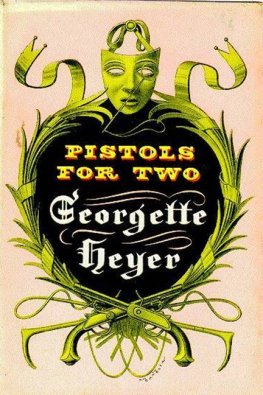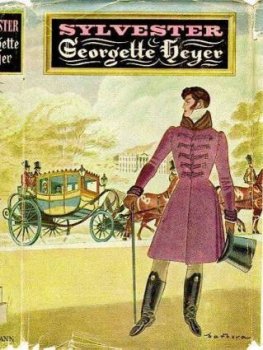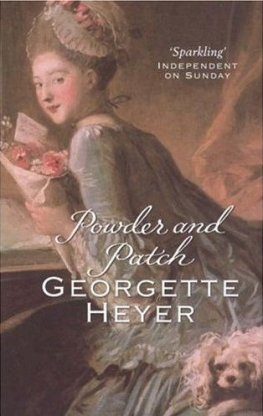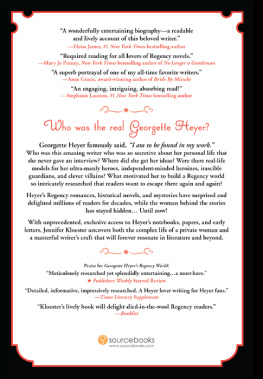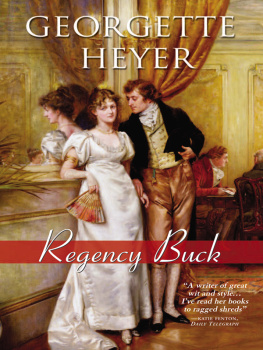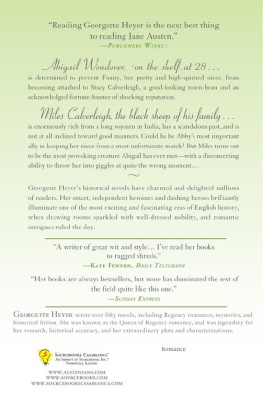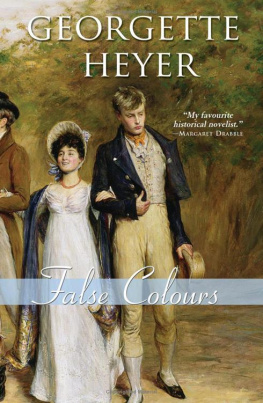Dzhordzhett Hejer - Pistols For Two and Other Stories
Here you can read online Dzhordzhett Hejer - Pistols For Two and Other Stories full text of the book (entire story) in english for free. Download pdf and epub, get meaning, cover and reviews about this ebook. year: 1960, genre: Romance novel. Description of the work, (preface) as well as reviews are available. Best literature library LitArk.com created for fans of good reading and offers a wide selection of genres:
Romance novel
Science fiction
Adventure
Detective
Science
History
Home and family
Prose
Art
Politics
Computer
Non-fiction
Religion
Business
Children
Humor
Choose a favorite category and find really read worthwhile books. Enjoy immersion in the world of imagination, feel the emotions of the characters or learn something new for yourself, make an fascinating discovery.
- Book:Pistols For Two and Other Stories
- Author:
- Genre:
- Year:1960
- Rating:4 / 5
- Favourites:Add to favourites
- Your mark:
- 80
- 1
- 2
- 3
- 4
- 5
Pistols For Two and Other Stories: summary, description and annotation
We offer to read an annotation, description, summary or preface (depends on what the author of the book "Pistols For Two and Other Stories" wrote himself). If you haven't found the necessary information about the book — write in the comments, we will try to find it.
Pistols For Two and Other Stories — read online for free the complete book (whole text) full work
Below is the text of the book, divided by pages. System saving the place of the last page read, allows you to conveniently read the book "Pistols For Two and Other Stories" online for free, without having to search again every time where you left off. Put a bookmark, and you can go to the page where you finished reading at any time.
Font size:
Interval:
Bookmark:
Georgette Heyer
Pistols For Twoand Other Stories
Pistols for Two
1
In the end, the quarrel, smouldering for so many weeks, flared up over such a trifle that anyone, Tom reflected, would have laughed to have known the cause. Only they had not really reached pistol-point because Jack had stepped backward in a doorway, and cannoned into him, making him spill his glass of champagne, and treading on his foot. Nor had Jack turned pale and tight-lipped with anger because he had cursed him for being a clumsy oaf. If you had known a fellow from the cradle, had played with him, gone to school with him, shot, fished, and hunted with him, you could curse him with impunity, and either it ended in a bout of fisticuffs or in laughter: not in a meeting in the chill morning, attended by seconds. Even had they not been such close friends that sort of thing was out of date: rubbishing stuff, fit only for the stage! Toms grandfather, of course, had been out five times, if the family legends were to be believed, on the most trifling provocation. He had once fought Jacks great-uncle Georgeand very comical they must have looked, Jack and he had often thought, giggling over it, with their shaven polls (for they had worn wigs, both of them), and the absurd ruffles they affected in place of wristbands, and had to tuck up, and their bare feet probably much bruised by the unkind ground. Nowadays, if one fought a duel, one chose pistols, and one didnt make a cake of oneself over the business. But very few people did fight duels, and certainly not because they had been jostled in doorways.
Only it wasnt that. This unthinkable situation had arisen out of something far more serious. Not that one could call Marianne Treen serious: she was the gayest and most lighthearted of all possible causes of dissension.
Strange what changes a few years could wreak in a female! There had been nothing remarkable in little Marianne Treen before she went south to boarding-school: in fact Tom could distinctly recall that he and Jack and Harry Denver had thought her a silly creature, with freckles on her nose, and a tiresome way of intruding where girls were not wanted. Her departure from Yorkshire left their withers unwrung; and since she spent her holidays in London, with her grandmama, they were very soon able to forget her.
But she had come back to Yorkshire. She had enjoyed a brilliant London season, and when most of the haut ton had gone to Brighton, Mrs Treen had brought her home to Treen Hall, and the neighbourhood had renewed their acquaintance with her at one of the assemblies at High Harrowgate. A stunning shock that had been to all the young gentlemen for miles around, for who would have supposed that this dazzling beauty was none other than freckled little Marianne, who was used to whine: Let me come with you! Oh, pray, let me come too!
They rarely had let her, and now she had her revenge on them. Only she was too sweet and too gay to care for that, and if she did favour some more than others it was easy to see that she used her best endeavours to be impartial.
Jack and Tom were her favourites, as they were certainly the most assiduous, of her courtiers. Everyone laughed at this, and they were roasted a little for doing everything together, even when it came to falling in love for the first time. That did nothing to soothe exacerbated tempers. It was a strange and deplorable circumstance that ones relatives were unable to see when one was in earnest, but, on the contrary, laboured under the delusion that if one had not yet come down from Oxford one was too young to think of marriage.
Each knew himself to be an eligible suitor. Perhaps Jack had a little the advantage over Tom, for his father was a baronet. But Toms father was the Squire, which counted for something, and Tom was his only son, whereas Jack had two younger brothers to be provided for.
At first their courtship had been unattended by any rancour. They were agreed that Marianne was incomparable, and their rivalry had been conducted in the friendliest spirit. Perhaps neither knew when the change had crept into their relationship with one another. Perhaps Jack was jealous of Toms superior height, and breadth of shoulder (sure to appeal to a female!); perhaps Tom envied Jack his air of elegance, and his handsome profile. Whatever the cause, the rift appeared between them. They had become hostile, each eyeing the other with suspicion, each on the watch for any cause for offence. A dozen times they had come within an ace of indulging in a maul; but never until this disastrous night had they considered the possibility of settling their quarrel at dawn, in Stanhopes Gearingby tradition an honourable meeting-place.
That Marianne would choose one or other of them before the summer ended neither doubted. The only question was which it would be, and this made it of paramount importance that neither should steal an unfair advantage over the other. After one or two squabbles they had agreed to thisor so Tom had believed, until on this night of the Treens Dress Party he had beheld with his own eyes the proof of Jacks perfidy. Both had meant to send Marianne a posy of flowers to carry at the ball, with a suitable message attached to the holder: which posy she chose would clearly indicate her hearts preference. Tom had bullied the Squires head gardener into making up an exquisite bouquet of pink roses and sweet-peas. He had ridden over to Treen Hall himself that morning, to leave the tribute with the Treens quelling butler, and the most shocking mischance had occurred. The mare had been stung by a horse-fly, and Tom, that bruising rider, lost in some beatific dream, and riding with a loose rein and his head in the clouds, had abruptly parted company with Bess. Alas for the delicate bouquet grasped in his right hand! A shower of petals in the road, a dismal array of broken stalks in the filigree holder: that was all that remained of it.
He had only just caught Bess when, as ill-fortune would have it, Jack came driving along the road from Melbury Court in his smart new tilbury. A bouquet of yellow roses lay on the seat beside him, so that there was no need to enquire his errand.
Three months earlier Jack would have roared with laughter at Toms mishap; today Jack was politeness itself, and not even the sight of that abject posy did more than make his lip quiver. Jack had had the infernal impudence to behave with magnanimity. He had said that since misfortune had overtaken Tom he should not present his own bouquet. This was precisely what Tom had been about to demand as his due, under the terms of their agreement. He said so, hating Jack for his punctiliousness. So Jack smiled in a slighting way, and had more than hinted that only a cork-brained fellow like Tom would have thought of offering pink roses to a goddess whose hair was a glorious Titian red.
Tom had brooded over it all the afternoon, but it was not then that the thought of calling Jack out had even remotely occurred to him. It hadnt really occurred to him when, on arriving at Treen Hall that evening, he had seen Marianne, adorable in a cloud of jonquil gauze over a white satin robe, holding in one gloved hand a posy of yellow roses. If any reasoned thought found room in his brain, it was merely a vague resolve to give Jack a leveller at the first convenient opportunityif (for Jack was a clever boxer) Jack did not first plant him a heavy facer.
It was a very grand party, with several London swells, who were staying at Treen Hall, much in evidence. At any other time, Tom, aspiring to fashion, would have taken careful note of the folds of the neckcloth worn by the Tulip talking to Mrs Treen, or regarded with envy the cut of the coat moulded across the shoulders of the gentleman from London who was dancing with Marianne. He would not have been jealous of this personage, for all his handsome face, and exquisite bearing, for he was quite oldthirty at least, Tom judgedand probably already the father of a hopeful family.
Font size:
Interval:
Bookmark:
Similar books «Pistols For Two and Other Stories»
Look at similar books to Pistols For Two and Other Stories. We have selected literature similar in name and meaning in the hope of providing readers with more options to find new, interesting, not yet read works.
Discussion, reviews of the book Pistols For Two and Other Stories and just readers' own opinions. Leave your comments, write what you think about the work, its meaning or the main characters. Specify what exactly you liked and what you didn't like, and why you think so.

